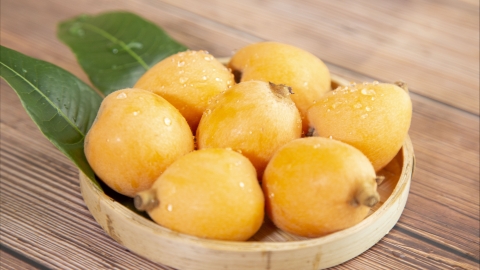Can I eat loquat fruit during early pregnancy?
Generally speaking, loquat fruit can be consumed during early pregnancy, but it should be eaten in moderation. Detailed analysis is as follows:

Loquat contains vitamin C, carotene, dietary fiber, potassium, calcium, and certain amounts of folate, which can provide some benefits for both pregnant women and the fetus. During early pregnancy, expectant mothers often experience symptoms such as nausea, vomiting, and loss of appetite. Loquat's sweet and sour taste can help stimulate appetite and aid digestion and absorption, thus alleviating these discomforts.
Vitamin C in loquat helps strengthen immunity and promote iron absorption, preventing anemia during pregnancy. Carotene can be converted into vitamin A, which is beneficial for the fetus' visual development. Dietary fiber helps relieve constipation, a common issue during early pregnancy. Folate helps prevent neural tube defects in the fetus. However, consumption should be moderate, as loquat contains a certain amount of sugar, excessive intake of which may cause elevated blood sugar levels. Additionally, loquat is slightly cooling in nature, and excessive consumption might cause gastrointestinal discomfort, especially for pregnant women with cold spleen and stomach conditions, who should limit their intake accordingly.
Some pregnant women may be allergic to loquat. Those trying it for the first time should start with a small amount and observe whether any adverse reactions occur, such as rashes, itching, or difficulty breathing. For safety, it is recommended that pregnant women consult an obstetrician or nutritionist before trying any new food, especially if they have a special constitution. Maintaining a balanced diet and moderately consuming a variety of nutrients during pregnancy is beneficial for both maternal and fetal health.










